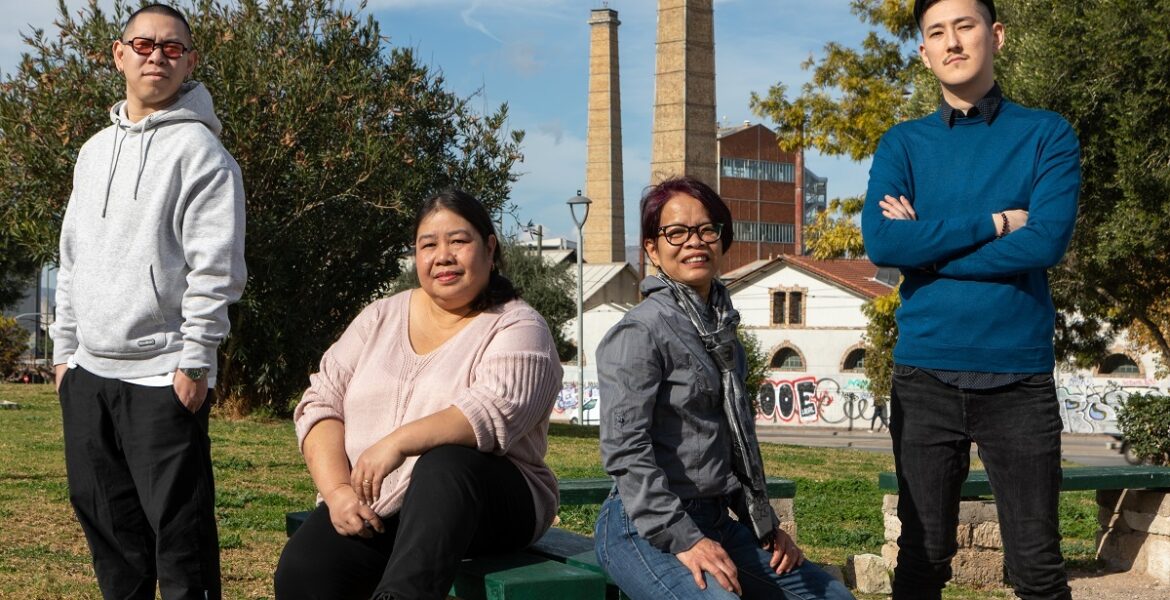Four chefs from Japan, the Philippines, Thailand and Vietnam tell us their culinary stories, which are full of colours, aromas and special tastes.
For most of us, visiting an ethnic restaurant seems like a virtual trip to a distant land, a discovery and a different experience out of the ordinary.
However, for the people who cook in them, it keeps them bonded with their country of origin. It is, if you like, their attempt to bring us closer to their culture and cuisine. They feel like we are their friends eating in their house.
We talked to four chefs from different Asian countries who have lived for many years or were born in Greece, and they told us their stories.
Tani Tran - Head Chef at Hachikō Sushi Tales & Cocktails restaurant in Glyfada
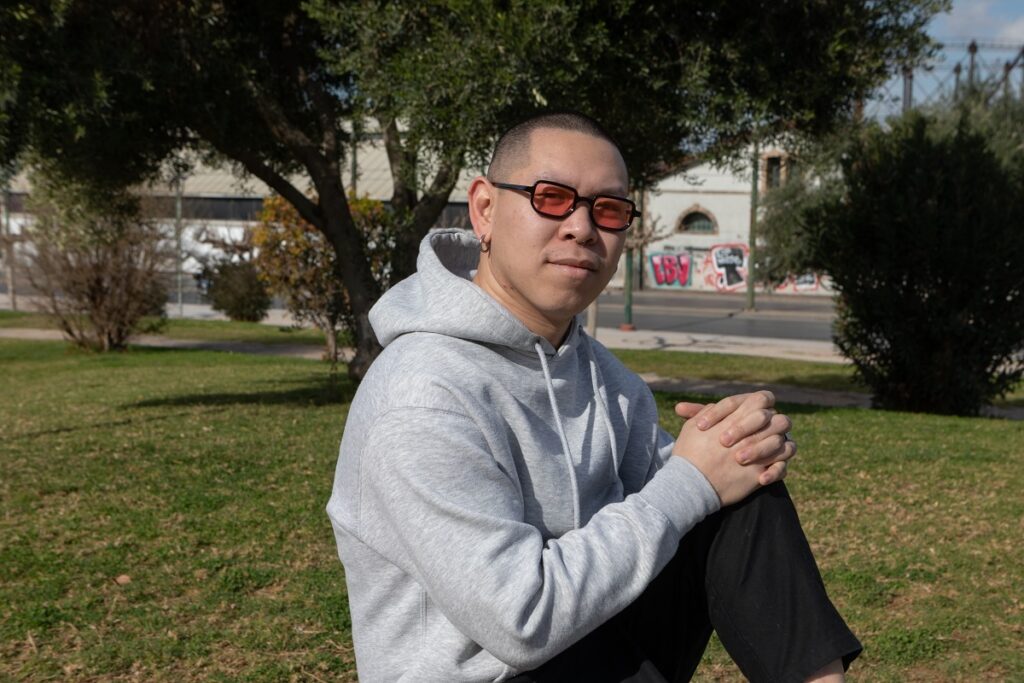
Tani's ancestral origins are in Vietnam, but he was born in Greece.
"I am a second-generation immigrant. My parents came from Vietnam in the early 1980s. They met in Greece, got married, and made their lives here. Now, of course, they have returned home. Things are better now, and they have retired," he said.
Tani grew up with all the difficulties that children of immigrants had in the 1990s.
"There was a lot of racism, but we survived," he said, smiling.
He got involved with cooking from a young age, next to his father.
“I always remember him with a wok in his hand. He was the one who transmitted my love for cooking, and I learned a lot from him. Now I'm trying to accomplish what he failed to do and always dreamed of - to open my/our own shop where we will make only Vietnamese food," Tani said, visibly moved.
We discussed traditional recipes, such as the famous pho soup, and the ingredients used, and we compared them to Greek cuisine.
"I like Greek food. It is different. I love pulses, chickpeas, and beans. I tried them for the first time at a friend's house whose mother had made them. Until then, beans were an ingredient with which we only made sweets," he explained.
Tani also tells me that he misses the human contact aspect of Vietnamese culture when the whole family sits together for hours to eat not just one meal but many.
"Here, it only happens on holidays. There, it happens even on weekdays," he concluded.
Marinela Bayting - Chef and Owner of Bulacan Halo-Halo Restaurant
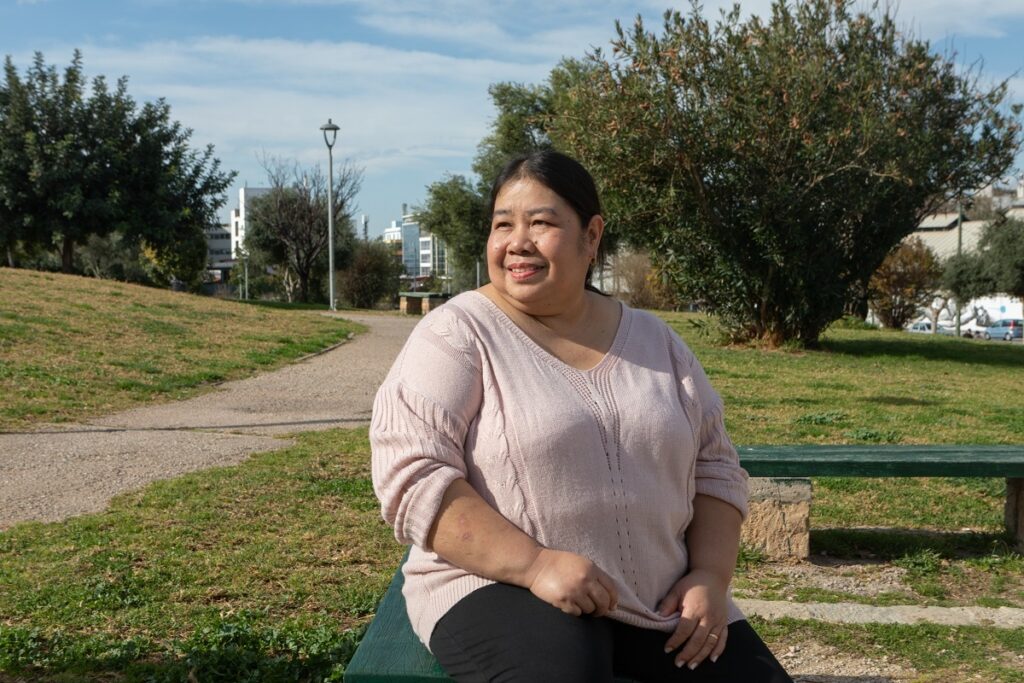
Marinela came from the Philippines to Greece at age 21 in search of a better fortune. For over 17 years, she worked as a housekeeper. Cooking, however, was not only done in the homes where she worked but also for the community of her compatriots.
At the time, she wasn't thinking about opening her own restaurant. However, when she managed to gather the whole family in Athens, this thought continued to mature. At first, she started making food at home and selling it.
A few years ago, she and her husband saw that there was no Filipino restaurant in Athens and made the first one in Ampelokipi, where many Filipinos live.
"We couldn't set it up in another district," she said.
Marinela talks nostalgically about her homeland. "I miss it very much. I try to go as much as possible, but it's not always easy. However, after thirty years, I also feel this place is my homeland. And the Greeks are very sweet people," she tells me.
Let's talk about what is special about Filipino cuisine.
"It has aromas, lots of herbs, fresh vegetables and lots of soups. It is a delicious and very interesting cuisine. Every day, I try to make the original recipes in the shop, and on Sundays, when we have the buffet, I make the most special ones. You must come and try them. You'll definitely like it."
And, of course, I will soon.
Uthaiwan Wannasuk - Owner and cook of Toukta restaurant
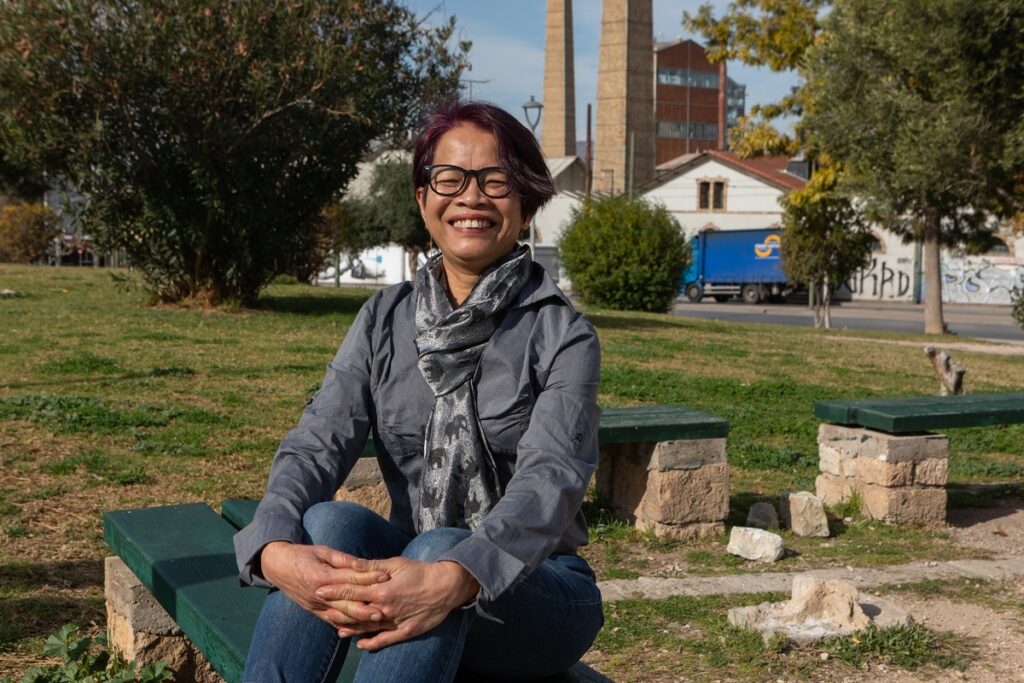
For as long as the photoshoot lasted, Toukta, Uthaiwan's pet name, did not stop talking, asking questions and telling jokes.
She is a small Thai woman who came to Greece for vacation in the late 1980s. She fell in love with her husband, married, and raised her family in Nikaia.
"My husband was a native of Nikaia when I had no choice," she tells me, laughing.
She runs a small restaurant with her daughter Marianna, where she cooks and serves. She doesn't claim to be a chef.
"I cook everything I would cook at home for us to eat. I didn't study cooking, you know. I am a simple housewife who likes to spend time in the kitchen. And I'm happy to be able to share all that I make with my guests," Uthaiwan said.
And it is true. Her food brings out a warmth, an intimacy, a motherly delicacy. She looks happy, and she is. She doesn't want much, as she tells me, "It's enough for me that the daily wage comes out, and I can pay my bills."
Of course, things were not easy from the beginning. When Uthaiwan set out to transform the coffee shop she owned with her husband into a restaurant, she had to throw away the typicalness of the neighbourhood cafe and educate her customers on Thai cuisine. And now, even after her husband's sudden death, she is working hard but is flourishing.
"We didn't advertise; word of mouth was what happened. In the beginning, they came from the wider area of Piraeus, now from all over Athens," she pointed out.
Hiro Mieno - Head chef at Shiraki Restaurant
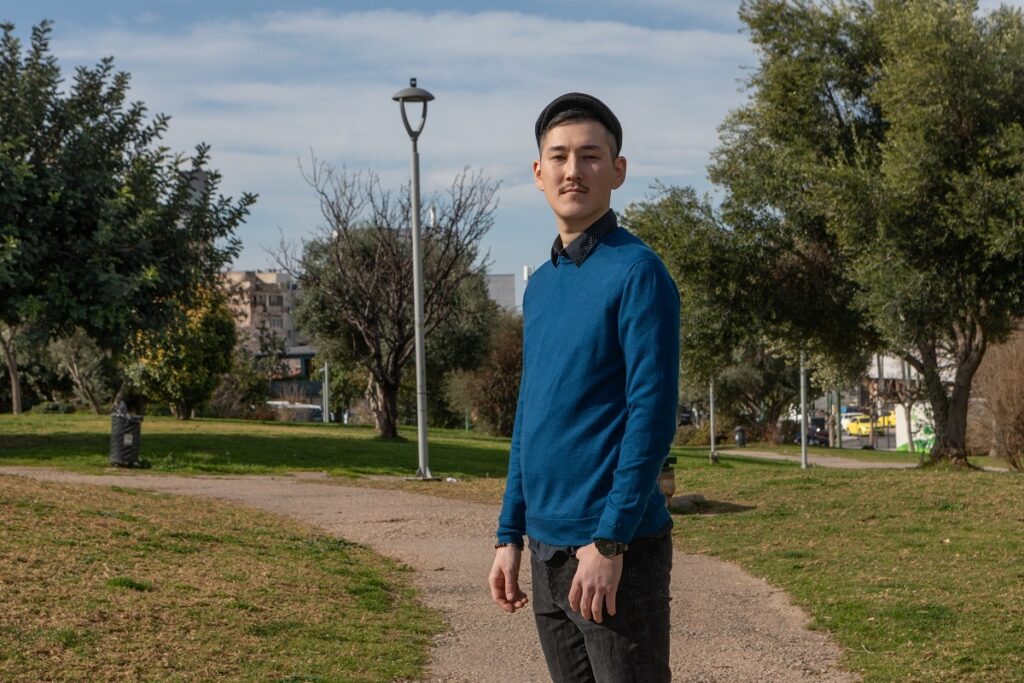
"I'm wearing a cap," he told me on the phone while I was looking for him at the place where we organised to meet.
No further description was needed - he's very tall.
I remembered him in the white uniform behind the bar of the restaurant where he works. Focused and serious, he rolled the sushi rolls with mastery and speed.
Hiro is Greek-Japanese—his mother is Japanese—and grew up in northern Greece. Before he got into cooking, he studied to be a physical therapist assistant, but he did not like it. In 2014, he entered the food industry, dealing especially with Asian cuisine.
"It reminds me of my home, my mother," he confides. "Japanese cuisine is not only sushi; it is much more. Ramen isn't purely Japanese, either. It comes from China. The udon (thick wheat noodles) are 100% ours,” he explains.
He says Japanese food is balanced, gentle, and deep-flavoured, thanks to the many vegetables and broths used.
"Unfortunately, here in Athens, we have a Europeanised version of it. And it is not a matter of raw materials. Now you can find it easily since many shops have Asian products," Hiro explains.
In the shop where he works, they give a more authentic image of Japanese cuisine, which is why many of his compatriots prefer it. And almost everyone definitely asks for soup.
"It is our comfort food—simple, delicious food that delights you. The next time you come, you will find out," he said.
Vasilis Dimaras is a columnist for Olive Magazine. Translated by Paul Antonopoulos.
READ MORE: Okio: Wonderful flavours of international cuisine in Athens.

